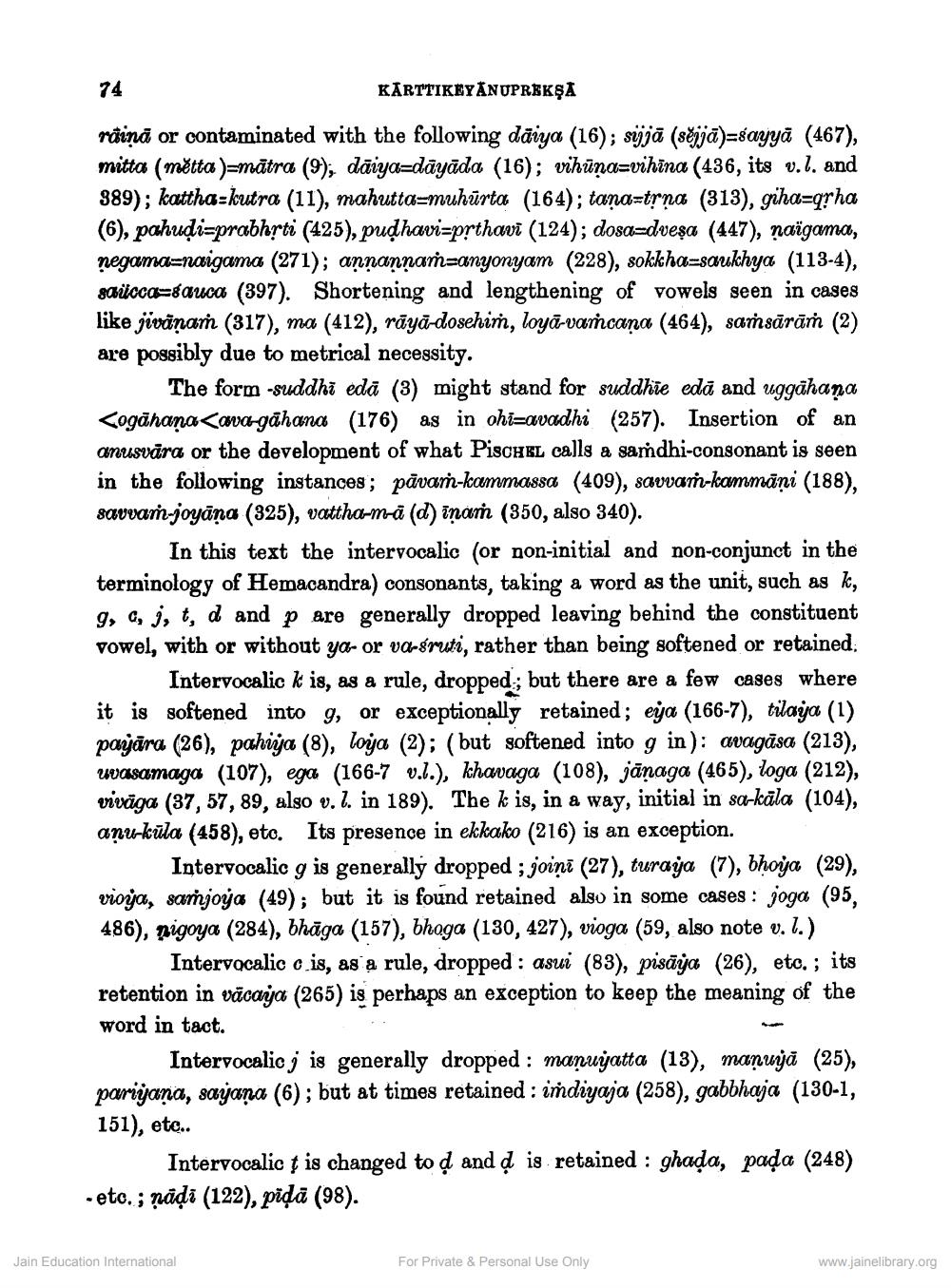________________
74
KĀRTTIKEYANUPREKŞA
rainā or contaminated with the following dāiya (16); sijjā (sējijā)=sayya (467), mitta (mětta )=mātra (9); dāiya=dāyāda (16); vihūna=vihina (436, its v.l. and 389); kattha-kutra (11), mahutta=muhūrta (164); tana=trņa (313), giha=qrha (6), pahudi-prabhrti (425), pudhavi=prthavi (124); dosa-dveşa (447), naïgama, negama=naigama (271); annannar=anyonyam (228), sokkha=saukhya (113-4), sdicca=sauca (397). Shortening and lengthening of vowels seen in cases like jivānam (317), ma (412), rāyā-dosehim, loyā-varcana (464), sarsārāṁ (2) are possibly due to metrical necessity.
The form -suddhi edā (3) might stand for suddhie edā and uggāhana <ogāhana<ava-gāhana (176) as in ohisavadhi (257). Insertion of an anusvāra or the development of what Piscurl calls a saṁdhi-consonant is seen in the following instances; pāvam-kammassa (409), savvarn-kammāni (188), savvar-joyāna (325), vatthamă (d)īņaṁ (350, also 340).
In this text the intervocalic (or non-initial and non-conjunct in the terminology of Hemacandra) consonants, taking a word as the unit, such as k, 9, a, j, t, d and p are generally dropped leaving behind the constituent vowel, with or without ya-or va-sruti, rather than being softened or retained.
Intervocalic k is, as a rule, dropped; but there are a few cases where it is softened into g, or exceptionally retained; eya (166-7), tilaya (1) pajāra (26), pahija (8), loja (2); (but softened into g in): avagāsa (213), wasamaga (107), ega (166-7 v.l.), khavaga (108), jānaga (465), loga (212), vivaga (37,57, 89, also v.l. in 189). The k is, in a way, initial in sa-kāla (104), anu-küla (458), eto. Its presence in ekkako (216) is an exception.
Intervocalic g is generally dropped ; joiņi (27), turaya (7), bhoya (29), vioja, sarnjoya (49); but it is found retained also in some cases : joga (95, 486), pigoya (284), bhāga (157), bhoga (130, 427), vioga (59, also note v. l.)
Intervocalic o is, as a rule, dropped: asui (83), pisāja (26), etc.; its retention in väcaya (265) is perhaps an exception to keep the meaning of the word in tact.
Intervocalic j is generally dropped : manuyatta (13), manujā (25), parijana, sayana (6); but at times retained: indiyaja (258), gabbhaja (130-1, 151), etc..
Intervocalic ţ is changed to d and d is retained : ghada, pada (248) .etc.; ņādi (122), pidā (98).
Jain Education International
For Private & Personal Use Only
www.jainelibrary.org




